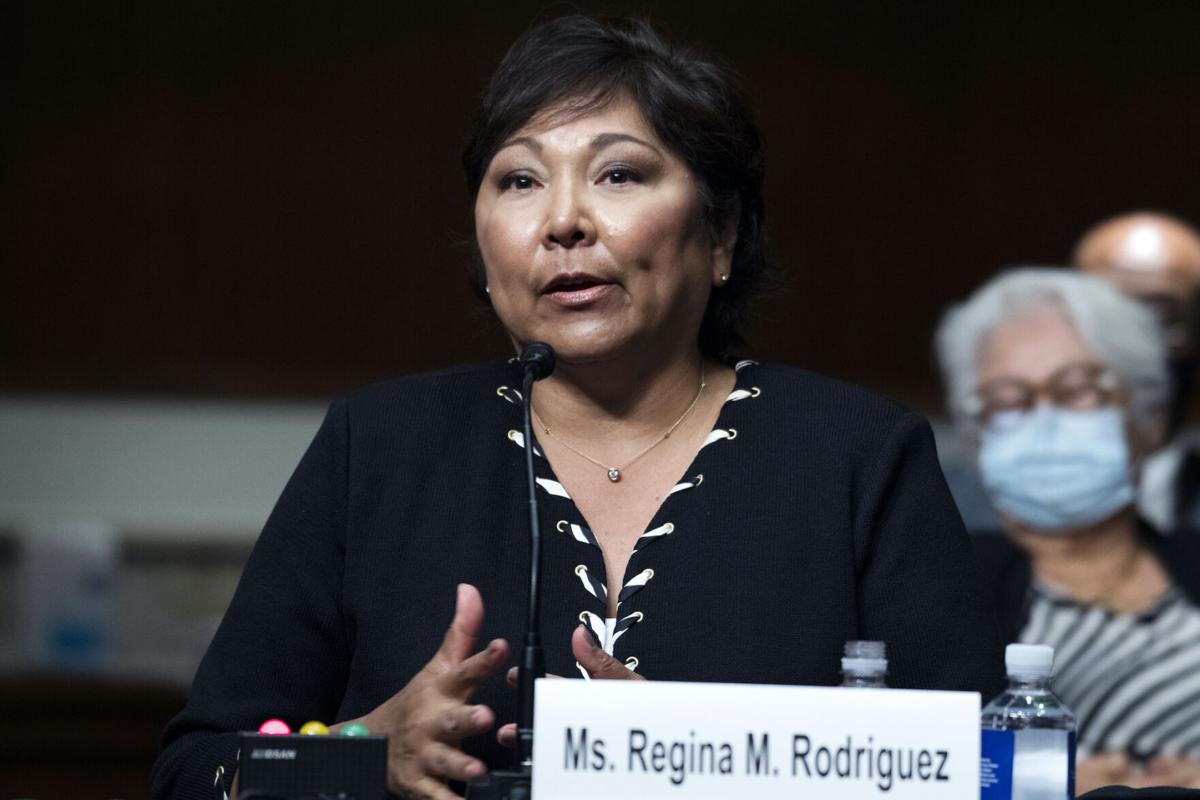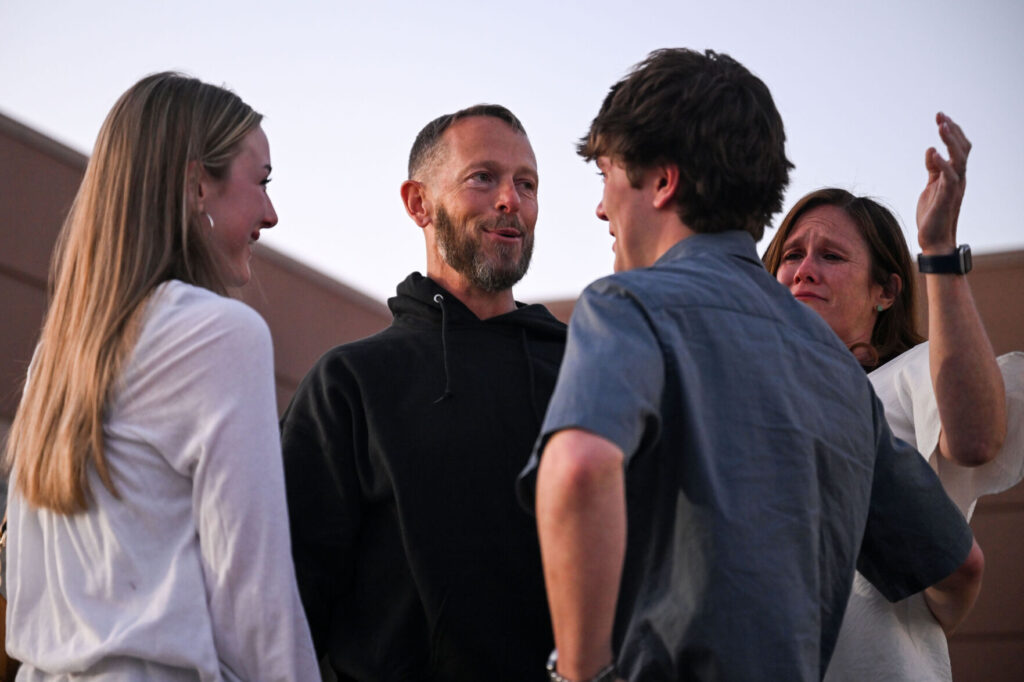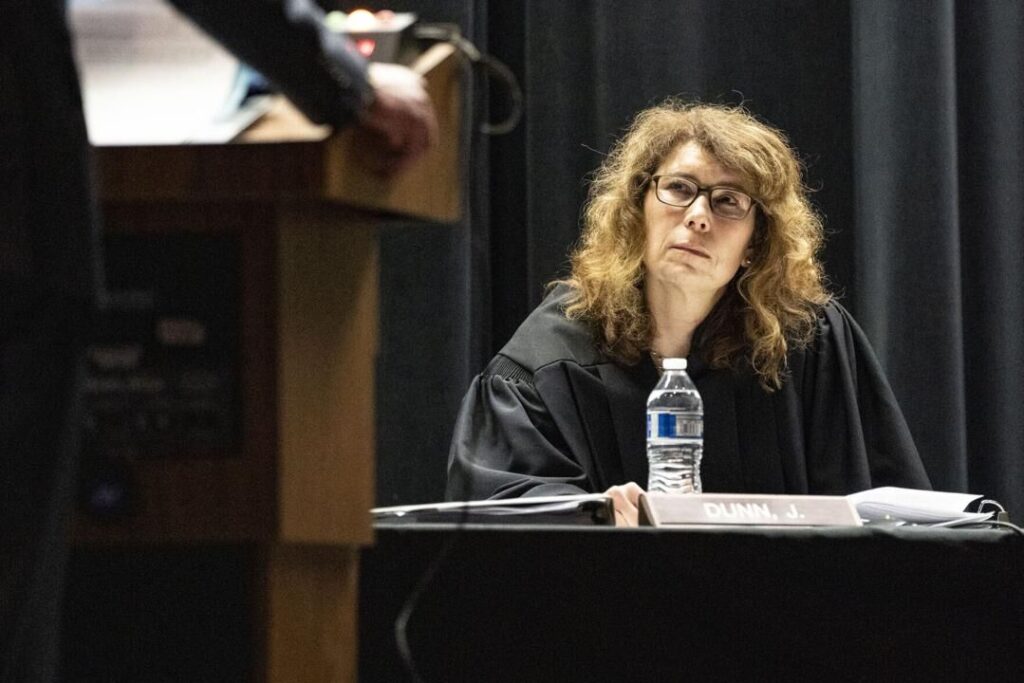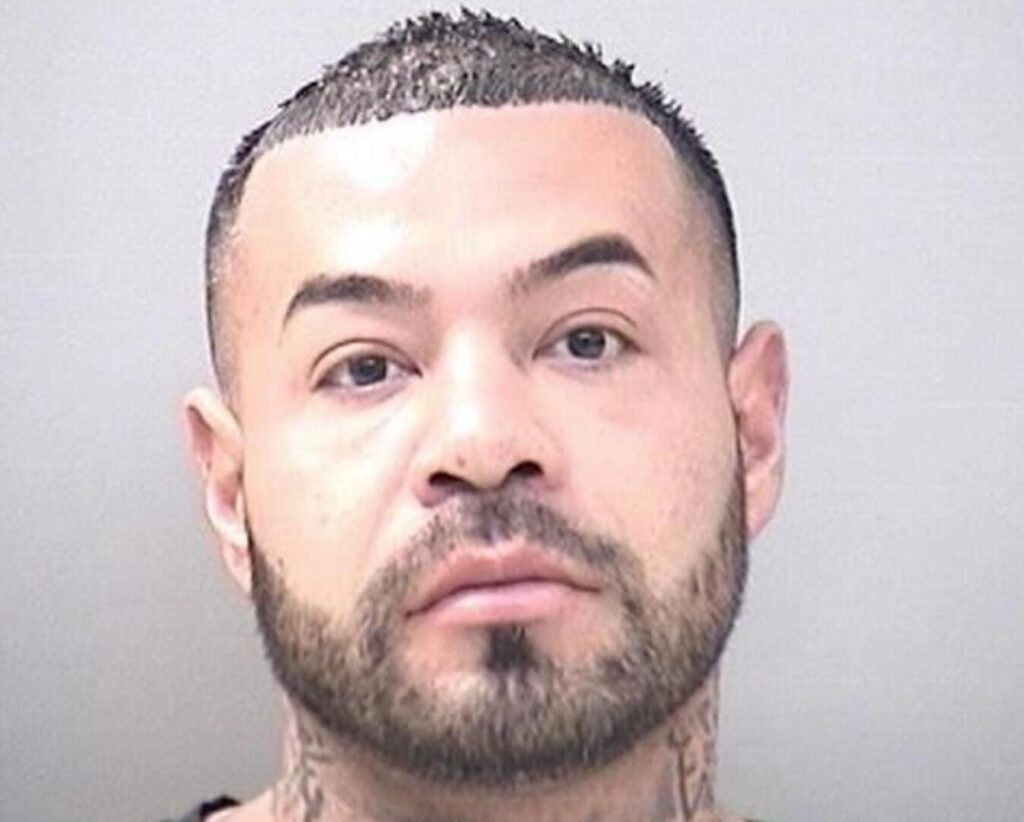Federal judge dismisses challenge to Jeffco overnight field trip policy’s reliance on gender identity

(Photo By Tom Williams/CQ Roll Call/POOL)
A federal judge on Thursday dismissed a constitutional challenge to the overnight field trip policy of Jeffco Public Schools, filed by multiple families who objected to rooming assignments based on students’ gender identities as opposed to their sex assigned at birth.
U.S. District Court Judge Regina M. Rodriguez concluded the 14th Amendment’s protection of a parent’s right to make decisions about the care and custody of their children did not require the school district to recalibrate its policy around the plaintiff parents’ personal views.
“Thus, while parents may have the right to instill moral and religious values in their children on topics like a child’s gender identity, sexual modesty, and interactions with the opposite sex at home,” wrote Rodriguez in an Aug. 7 order, “they have no right to dictate Jeffco’s curriculum around these issues and its efforts to ensure that transgender students are part of an educational environment where all students feel safe and ready to learn.”
She also noted that, in practice, children are “neither being exposed to” nor exposing themselves in bathrooms or locker rooms to potentially transgender students at Outdoor Lab — a week-long residential camp that serves 5,000 participants each year. Even then, families can seek accommodations, such as only attending the camp during the day.
Rodriguez, a Joe Biden appointee, did not mention the recent U.S. Supreme Court ruling in Mahmoud v. Taylor. Decided in June, the Republican-appointed majority sided with a group of religious families seeking to prevent a Maryland school district from requiring LGBTQ-themed books as part of the curriculum.
The plaintiff families in the Jeffco Public Schools lawsuit argued to Rodriguez that the decision supported their religious exercise claims and the notion that “Jeffco can also structure its rooming policy to accommodate Plaintiffs’ religious beliefs.”
The school district responded by pointing to Justice Samuel A. Alito Jr.’s statement in the majority opinion that determining whether a governmental policy interferes with a family’s religious rights “will always be fact-intensive.” The district believed the circumstances of literature selection in Maryland bore little resemblance to the gender-based lodging policy in Colorado.
The disputed Jeffco Public Schools’ policy, entitled “Equal Education Opportunities – Transgender Students,” provides that trans students “in most cases” should be assigned to overnight accommodations based on the student’s “gender identity consistently asserted at school.”
The Wailes, Rolller, Perlman and Brinkman families sued, alleging their children had either been assigned to room with a trans student or were at risk of such an assignment going forward. Their claims, based on religion and parental rights, generally asserted that the government unconstitutionally infringes on the families’ values by imposing overnight accommodations exposing children to members of the opposite sex.
The plaintiffs also argued that the available accommodations — either allowing students to abstain from the overnight portion of Outdoor Lab or seeking another rooming assignment for other trips — were really a “penalty.”
“Jeffco could let all parents choose whether their children will be roomed by gender identity or sex or assert that they have no preference,” wrote attorneys for the Alliance Defending Freedom, which has historically litigated on behalf of Christians challenging Colorado’s LGBTQ non-discrimination laws.
Jeffco Public Schools, in seeking to dismiss the lawsuit, argued the plaintiffs actually objected to “being near transgender children” during overnight trips. It also believed the proposed solution was flawed: Because the district does not know the sex assigned at birth for every child, creating a sex-based classification system would require an investigation into each student.
“Second, students are never required to go on an overnight trip and share a room with anyone. Accommodations are available to all Jeffco students—for any reason,” the district’s lawyers wrote.
Rodriguez found that one of the families lacked standing to sue because their child had not participated in overnight trips and had no concrete plans to do so. As for the other plaintiffs, she concluded the families “have no right to replace public education with their own personal views.”
“Nothing about Jeffco’s policy prohibits parents from teaching their children certain values,” she wrote. “Requiring implementation of Plaintiffs’ views on sex and gender identity at Jeffco at the expense of making a transgender student feel unsafe or unwelcomed in an educational environment falls outside the fundamental right to direct the care and upbringing of one’s child.”
As for the religious exercise claims, Rodriguez found the district’s policy was neutral towards religion, as it permits families to request accommodations for any reason and “does not punish anyone for expressing their religious beliefs.”
Finally, Rodriguez noted the policy itself did not seemingly require an intrusion into students’ privacy rights, nor was the district’s actual lodging devoid of privacy. But regardless, there is no “fundamental privacy right to avoid all risk of intimate exposure to or by a transgender person who was assigned the opposite biological sex at birth.”
The case is Wailes et al. v. Jefferson County Public Schools et al.













